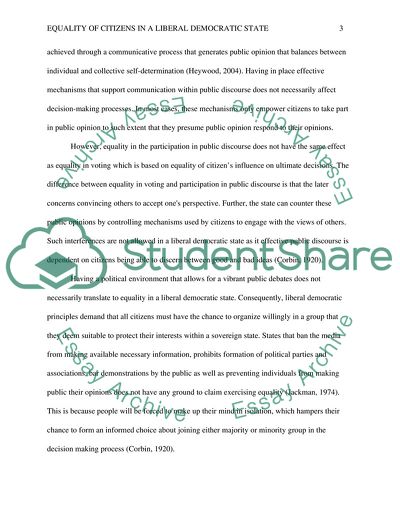Cite this document
(Equality of Citizens of a Liberal Democratic State Essay, n.d.)
Equality of Citizens of a Liberal Democratic State Essay. https://studentshare.org/sociology/1810287-how-equal-should-the-citizens-of-a-liberal-democratic-state-be
Equality of Citizens of a Liberal Democratic State Essay. https://studentshare.org/sociology/1810287-how-equal-should-the-citizens-of-a-liberal-democratic-state-be
(Equality of Citizens of a Liberal Democratic State Essay)
Equality of Citizens of a Liberal Democratic State Essay. https://studentshare.org/sociology/1810287-how-equal-should-the-citizens-of-a-liberal-democratic-state-be.
Equality of Citizens of a Liberal Democratic State Essay. https://studentshare.org/sociology/1810287-how-equal-should-the-citizens-of-a-liberal-democratic-state-be.
“Equality of Citizens of a Liberal Democratic State Essay”. https://studentshare.org/sociology/1810287-how-equal-should-the-citizens-of-a-liberal-democratic-state-be.


